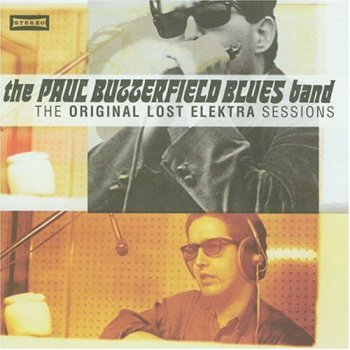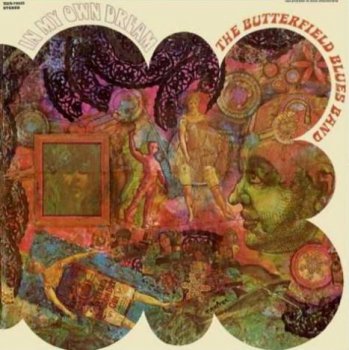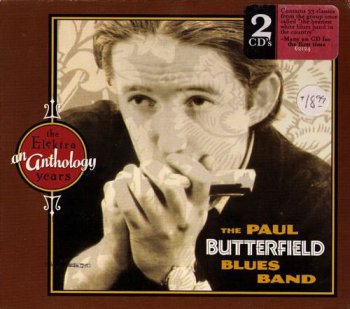Teddy Swims - I've Tried Everything But Therapy (Part 2) (2025)
rip by Boris1 Performer: Teddy Swims Album: I've Tried Everything But Therapy (Part 2) Label: Warner Records Catalog #: 093624853138 Style: Soul, Pop, R autoplay; clipboard-write; encrypted-media; gyroscope; picture-in-picture; web-share" referrerpolicy="strict-origin-when-cross-origin" allowfullscreen title="Teddy Swims - Bad Dreams (Official Music Video)">

Teddy Swims - I've Tried Everything But Therapy (Part 2) (2025)
rip by Boris1 Performer: Teddy Swims Album: I've Tried Everything But Therapy (Part 2) Label: Warner Records Catalog #: 093624853138 Style: Soul, Pop, R autoplay; clipboard-write; encrypted-media; gyroscope; picture-in-picture; web-share" referrerpolicy="strict-origin-when-cross-origin" allowfullscreen title="Teddy Swims - Bad Dreams (Official Music Video)">
11 09, 2025
Teddy Swims - I've Tried Everything But Therapy (Part I) (2023)
rip by Boris1 Performer: Teddy Swims Album: I've Tried Everything But Therapy (Part I) Label: Warner Records Catalog #: 095624856757 Style: Soul, Pop, R autoplay; clipboard-write; encrypted-media; gyroscope; picture-in-picture; web-share" referrerpolicy="strict-origin-when-cross-origin" allowfullscreen title="Teddy Swims - Lose Control (Live)">
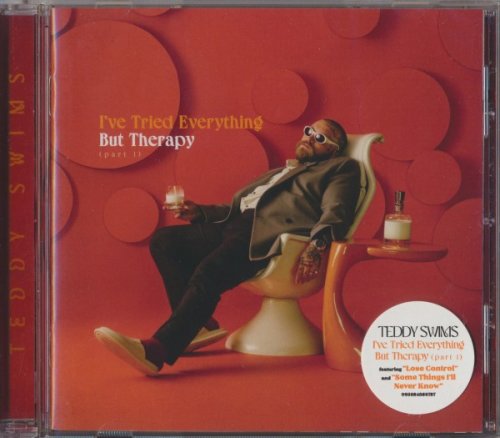
Teddy Swims - I've Tried Everything But Therapy (Part I) (2023)
rip by Boris1 Performer: Teddy Swims Album: I've Tried Everything But Therapy (Part I) Label: Warner Records Catalog #: 095624856757 Style: Soul, Pop, R autoplay; clipboard-write; encrypted-media; gyroscope; picture-in-picture; web-share" referrerpolicy="strict-origin-when-cross-origin" allowfullscreen title="Teddy Swims - Lose Control (Live)">
11 09, 2025
DONNA SUMMER «Discography on vinyl» + bonus (10 × LP + 4 × CD • Casablanca Records Ltd • 1975-2005)
Performer: DONNA SUMMER / ドナ・サマー Album / collection: «Discography on vinyl» + bonus Label: (c)(p) 1975-1984 Casablanca Records Limited. Source: Rip by Dymokust scans by inet… > Conversion 32/192kHz by KoGGaN™ Official DR value: •12•12•12•14•13•14•13•13•14•15•9/11•9/9• Catalog (Barcode): much… Genre / Style: Pop, Funk / Soul, Disco Year (info): 1975-1984 (10 × Original vinyl, LP, + 4 × CD, Collection—) Format: WV (image + .cue) Bitrate: 32bit/192kHz Stereo Covers: in archive Amount of

DONNA SUMMER «Discography on vinyl» + bonus (10 × LP + 4 × CD • Casablanca Records Ltd • 1975-2005)
Performer: DONNA SUMMER / ドナ・サマー Album / collection: «Discography on vinyl» + bonus Label: (c)(p) 1975-1984 Casablanca Records Limited. Source: Rip by Dymokust scans by inet… > Conversion 32/192kHz by KoGGaN™ Official DR value: •12•12•12•14•13•14•13•13•14•15•9/11•9/9• Catalog (Barcode): much… Genre / Style: Pop, Funk / Soul, Disco Year (info): 1975-1984 (10 × Original vinyl, LP, + 4 × CD, Collection—) Format: WV (image + .cue) Bitrate: 32bit/192kHz Stereo Covers: in archive Amount of
11 09, 2025
Жанры
Lossless Galaxy Release
Русская музыка
--Поп
--Рок
--Панк
--Альтернатива
--Металл
--Рэп, Хип-Хоп, R'n'B
--Джаз и Блюз
--Фолк
--Шансон, Авторская песня
--СССР
Зарубежная музыка
--Pop
--Rock
--Hard Rock
--Progressive & Art-Rock
--Pop-Rock & Soft Rock
--Instrumental Rock
--Heavy, Traditional, Industrial Metal
--Power, Gothic, Sympho Metal
--Thrash, Speed, Groove, Modern Metal
--Death, Melodic Death, Doom, Dark Metal
--Black, Pagan, Folk, Viking Metal
--Alternative
--Punk
--Disco, Eurodance
--Rap, Hip Hop, R'n'B
--Reggae, Ska, Dub
--Jazz, Blues, Soul
--Folk, Country, Ethnic
--Electronic, Ambient, New Wave
--House, Techno, Trance
Другие жанры
--New Age, Relax, Meditative & Flamenco
--Chillout, Lounge, Downtempo, Trip-Hop
--Drum & Bass, Jungle, Breakbeat, IDM
--Classical / Классическая музыка
--Soundtrack
--Музыкальные сказки
Vinyl Rip
HI-Res / DVD-Audio / DTS
--SACD
--DSD
--DVD-Audio
Сборники Lossless-Galaxy
Альбомы 2022
Альбомы 2023
Альбомы 2024
Теги
1st Press 2022 2023 2024 2025 70... AOR Black Metal Blues Blues Rock Bootleg Series Classic Rock Death Metal Discography Exclusive for Lossless-Galaxy Folk Rock Fusion Hard Rock Heavy Metal Hi-Res Japanese Edition Jazz Jazz Rock lossless Melodic Death Metal Melodic Rock Modern Electric Blues Pop Pop Rock Power Metal Prog Rock Progressive Metal Progressive Rock Psych Rock Psychedelic Rock Rock SACD Symphonic Metal Thrash Metal Дискографии от KoGGaN
Архивы
Опрос
В каком формате хотели бы видеть релизы на сайте ?
 Автор: ALLexxess, 29 марта 2011, Комментариев: 2, Просмотров: 7 641
Автор: ALLexxess, 29 марта 2011, Комментариев: 2, Просмотров: 7 641The Paul Butterfield Blues Band: Original Album Series ● 5CD Box Set Rhino Records 2010
Lossless Galaxy Release

The Paul Butterfield Blues Band: Original Album Series
5CD Box Set Rhino Records
5CD Box Set Rhino Records
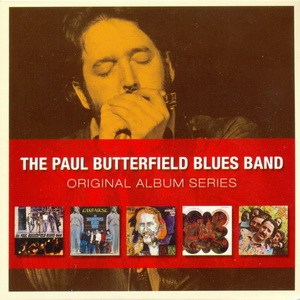
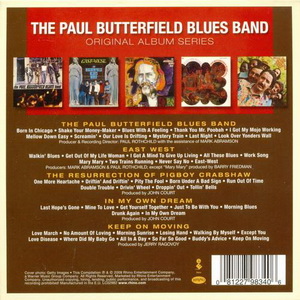
Исполнитель:
The Paul Butterfield Blues Band
Box:
Original Album Series
(5CD Box Set Rhino Records)
Альбомы:
1965 The Paul Butterfield Blues Band ♪♪♪ 1966 East-West
1967 The Resurrection Of Pigboy Crabshaw
1968 In My Own Dream ♪♪♪ 1969 Keep On Moving
Информация:
Elektra / Rhino Records
This Compilation Ⓟ & © 2009 Rhino Entertainment Company, a Music Warner Group Company
Manufactured in the EU
Catalog Box: 8122 79834 0
Catalog All CDs: 8122 79834 0
Label Code: LC02982 / Barcode:
Original Vinyl Albumsleeves:
The Paul Butterfield Blues Band - 1965 Ⓟ & © Elektra US EKS 7294
East-West - Ⓟ & © 1966 Elektra US EKS 7315
The Resurrection Of Pigboy Crabshaw - Ⓟ & © 1967 Elektra US EKS 74015
In My Own Dream - Ⓟ & © 1968 Elektra / Sundazed US EKS 74025
Keep On Moving - Ⓟ & © 1969 Elektra US EKS 74053
Жанр: Rock / Blues / Blues Rock / Chicago Blues / Electric Blues
Год: 2010
Формат: FLAC / Level 8 (img + *cue + log, AccurateRip)
Качество: lossless
Covers: format PNG 600dpi, full scans
Размер:
• • • • • • • • • • • • • • • • • • • • • • • • • • • • • • • •
Каждый CD можно скачать отдельно
Each CD can be downloaded separately
• • • • • • • • • • • • • • • • • • • • • • • • • • • • • • • •
Залито на: FileSonic + Hotfile + Fileserve (3% восстановление)
The Paul Butterfield Blues Band
Box:
Original Album Series
(5CD Box Set Rhino Records)
Альбомы:
1965 The Paul Butterfield Blues Band ♪♪♪ 1966 East-West
1967 The Resurrection Of Pigboy Crabshaw
1968 In My Own Dream ♪♪♪ 1969 Keep On Moving
Информация:
Elektra / Rhino Records
This Compilation Ⓟ & © 2009 Rhino Entertainment Company, a Music Warner Group Company
Manufactured in the EU
Catalog Box: 8122 79834 0
Catalog All CDs: 8122 79834 0
Label Code: LC02982 / Barcode:
Original Vinyl Albumsleeves:
The Paul Butterfield Blues Band - 1965 Ⓟ & © Elektra US EKS 7294
East-West - Ⓟ & © 1966 Elektra US EKS 7315
The Resurrection Of Pigboy Crabshaw - Ⓟ & © 1967 Elektra US EKS 74015
In My Own Dream - Ⓟ & © 1968 Elektra / Sundazed US EKS 74025
Keep On Moving - Ⓟ & © 1969 Elektra US EKS 74053
Жанр: Rock / Blues / Blues Rock / Chicago Blues / Electric Blues
Год: 2010
Формат: FLAC / Level 8 (img + *cue + log, AccurateRip)
Качество: lossless
Covers: format PNG 600dpi, full scans
Размер:
• • • • • • • • • • • • • • • • • • • • • • • • • • • • • • • •
Каждый CD можно скачать отдельно
Each CD can be downloaded separately
• • • • • • • • • • • • • • • • • • • • • • • • • • • • • • • •
Залито на: FileSonic + Hotfile + Fileserve (3% восстановление)
Диски упакованы в картонные конверты и вложены в коробку. Оформление картонных конвертов соотвествует оригинальному оформлению виниловых пластинок.
Only five CD box set containing a quintet of original albums from this Blues Rock outfit: East-West, In My Own Dream, Keep On Moving, The Paul Butterfield Blues Band and The Resurrection Of Pigboy Crabshaw.
Warner. 2010

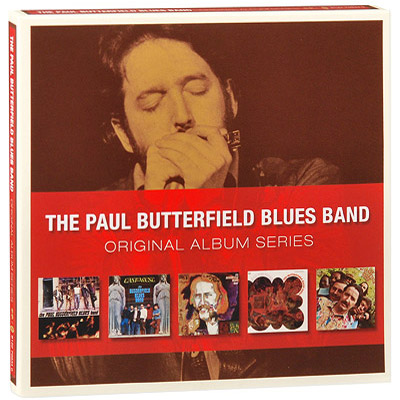
en.wikipedia.org
Paul Butterfield (17 December 1942 - 4 May 1987) was an American blues vocalist and harmonica player, who founded the Paul Butterfield Blues Band in the early 1960s and performed at the original Woodstock Festival. He died of drug-related heart failure. The son of a lawyer, Paul Butterfield was born and raised in Chicago's Hyde Park neighborhood., where he attended the University of Chicago Laboratory Schools, a private school associated with the University of Chicago. After studying classical flute with Walfrid Kujala of the Chicago Symphony Orchestra as a teenager, he developed a love for the blues harmonica, and hooked up with white, blues-loving, University of Chicago physics student Elvin Bishop. The pair started hanging around black blues musicians such as Muddy Waters, Howlin' Wolf, Little Walter and Otis Rush. Butterfield and Bishop soon formed a band with Jerome Arnold and Sam Lay, both hired away from the touring band of Howlin' Wolf. In 1963, the racially mixed quartet was made the house band at Big John's, a folk music club in the Old Town district on Chicago's north side. Butterfield was still underage (as was guitarist Mike Bloomfield.) The Paul Butterfield Blues Band was signed to Elektra Records after adding Bloomfield as lead guitarist. Their original debut sessions were scrapped, to appear in 1995 as The Original Lost Elektra Sessions. A second attempt was recorded live at the Cafe Au Go Go, but these too were rejected by producer Paul Rothchild. Some of the discarded tracks appeared on the What's Shakin LP shared with the Lovin' Spoonful. At the Newport Folk Festival in July 1965, Bob Dylan went electric in a move considered controversial at the time by much of the folk music establishment, backed by members of Butterfield's band - Bloomfield, Arnold, and Lay - but not Butterfield himself. In October, the self-titled debut recorded a third time after the addition of organist Mark Naftalin on some tracks, The Paul Butterfield Blues Band, containing Nick Gravenites' "Born in Chicago," was released. Shortly thereafter, Lay became ill with pneumonia and pleurisy and Billy Davenport took over on drums. The Butterfield Band's second album was East-West, released in 1966, after which Bloomfield, Arnold, and Davenport left the band. Bloomfield formed The Electric Flag with Nick Gravenites, and Bishop began playing lead guitar on The Resurrection of Pigboy Crabshaw (1967). The band now included saxophonists David Sanborn and Gene Dinwiddie, bassist Bugsy Maugh, and drummer Phillip Wilson. In 1967, The Butterfield Blues Band played the seminal Monterey International Pop Festival along with the Electric Flag, Jimi Hendrix, Ravi Shankar, The Who, Otis Redding, the counterculture bands of San Francisco, and many others. After the release of In My Own Dream, both Bishop and Naftalin left by the end of 1968. Nineteen-year-old guitarist Buzzy Feiten, joined the band for its 1969 release, Keep On Moving, produced by Jerry Ragavoy, and Rod Hicks replaced Maugh on bass. The Butterfield band played at the Woodstock Festival, although their performance wasn't included in the resulting Woodstock film. In 1969, Butterfield also took part in a concert at Chicago's Auditorium Theater and a subsequent recording session organized by record producer Norman Dayron, featuring Muddy Waters and backed by pianist Otis Spann, Michael Bloomfield, Sam Lay, Donald "Duck" Dunn, and Buddy Miles, which was recorded and portions released on Fathers And Sons on Chess Records. Following the releases of Live in 1970 and Sometimes I Just Feel Like Smiling in 1971, Butterfield broke up the horn band with David Sanborn and Dinwiddie, and returned to Woodstock, New York. He formed a new group including Chris Parker on drums, guitarist Amos Garrett, Geoff Muldaur, pianist Ronnie Barron and bassist Billy Rich, naming the ensemble "Better Days." The group released Paul Butterfield's Better Days and It All Comes Back in 1972 and 1973, respectively. In 1976, Butterfield performed at The Band's final concert, The Last Waltz. Together with The Band, he performed the song "Mystery Train" and backed Muddy Waters on "Mannish Boy".
hardrockcafe.narod.ru
Главная заслуга этого музыканта в том, что он одним из первых "бледнолицых" вторгся на территорию черного блюза, установив новые правила в этом жанре и тем самым существенно расширив аудиторию поклонников данного стиля. Пол Баттерфилд родился в Чикаго 17 декабря 1942 года. Первые музыкальные навыки мальчик приобрел, беря уроки игры на флейте и прослушивая джазовые пластинки отца. В подростковом возрасте Пол увлекся блюзом и начал осваивать гитару и губную гармошку. Тогда же он со своим одноклассником Ником Грэйвнайтсом частенько посещал клубы, где выступали чернокожие музыканты. Во время учебы в Чикагском Университете Баттерфилд сошелся с разделявшим его пристрастия Элвином Бишопом. Элвин хорошо играл на гитаре, а Пол сосредоточился на пении и игре на гармошке. Именно тогда и выработался его фирменный стиль, который отличался от традиционной манеры исполнения (он практически не блокировал язык, как это делали другие). Баттерфилд и Бишоп с удвоенной силой атаковали "черные" клубы, и спустя некоторое время тамошняя аудитория по достоинству оценила их энтузиазм. Дело кончилось тем, что парни увели ритм-секцию у самого Хаулина Вульфа и вместе с басистом Джеромом Арнольдом и барабанщиком Сэмом Лэем организовали "Paul Butterfield Blues Band". Новоявленный квартет заметно оживил чикагские блюзовые стандарты, исполняя их в более жестком варианте. В конце 1964 года группа попала в поле зрения продюсера Пола Ротшильда и благодаря этому заполучила контракт с "Elektra". Усилив состав гитаристом Майклом Блумфилдом, команда отправилась в студию записывать дебютный альбом. Однако в процессе работы между Полом и Майком началась борьба за лидерство, и дело пошло насмарку. От тех сессий осталась лишь композиция Грэйвнайтса "Born in Chicago", помещенная на сборник "Folksong '65" и вызвавшая море положительных откликов. Полнометражку удалось записать лишь со второй попытки, когда к коллективу примкнул клавишник Марк Нафталин. Незадолго до выхода пластинки "Paul Butterfield Blues Band" наделали немало шороху, выступив на фолк-фестивале в Ньюпорте на сопровождении у Боба Дилана. Дебютная работа группы впоследствии была отнесена к классике блюза и сделала этот жанр более доступным для белой аудитории. В конце 1965-го место Лэя занял джазово-ориентированный барабанщик Билли Дэвенпорт. Эта замена, а также увлечение Блумфилда индийской музыкой изменили стиль "PBBB", и диск "East-West" являл собой смесь блюза, джаза, психоделии и восточных мотивов. Третья пластинка, записанная уже без Майка и с другой ритм-секцией, была сделана с закосом в соул. Альбом "The Resurrection of Pigboy Crabshaw" стал последним значительным творением банды Баттерфилда. Следующая работа, "In My Own Dream", получилась неважной, и концу года из группы ушли Нафталин и Бишоп. Однако "Elektra" еще надеялась, что ее подопечные совершат коммерческий прорыв, и для записи пятой пластинки был нанят известный ритм-энд-блюзовый продюсер Джерри Раговой. Впрочем, затея эта провалилась, поскольку Пол хотел двигаться в джазовом направлении и не особо подчинялся указаниям Джерри. В 1969 году "Paul Butterfield Blues Band" выступили на легендарном Вудстоке, а сам Баттерфилд засветился на альбоме Мадди Уотерса "Fathers And Sons". После выхода концертника "Live" и студийника "Sometimes I Just Feel Like Smilin'" Пол распустил свою команду и ушел с "Elektra". В 1971-м Баттерфилд собрал новый проект, "Better Days", с которым выпустил пару пластинок. О коммерческом успехе этих работ говорить не приходилось, но обе они вызвали положительную реакцию критиков. После распада группы Баттерфилд вновь посотрудничал с Уотерсом, а затем начал сольную карьеру. Впрочем, пластинка "Put It in Your Ear" страдала отсутствием фирменной игры на гармошке и слабостью материала, и Пол несколько следующих лет занимался сессионной работой. В 1981-м музыкант вернулся с сольником "North-South", но этот перегруженный синтезаторами альбом также оказался невостребованным. К тому времени ввиду неумеренного потребления алкоголя здоровье Баттерфилда сильно пошатнулось, да к тому же он увлекся героином. И все же Пол продолжал выступать и в 1986-м выпустил свой последний альбом "The Legendary Paul Butterfield Rides Again". К сожалению, дни музыканта были уже сочтены, и вскоре дурные привычки свели его в могилу. Пол Баттерфилд скончался от передозировки наркотиков 4 мая 1987 года.
Rip by ALLexxess
Disc 1 is "The Paul Butterfield Blues Band" their 11-track debut album released December 1965 on Elektra EKS 7294 in the USA
Disc 2 is "East-West" their 9-track 2nd album released October 1966 on Elektra EKS 7315 in the USA
Disc 3 is "The Resurrection Of Pigboy Crabshaw" their 9-track 3rd album released January 1968 on Elektra EKS 74015 in the USA
Disc 4 is "In My Own Dream" their 7-track 4th album released August 1968 on Elektra EKS 74025 in the USA
Disc 5 is "Keep On Moving" their 12-track 5th album released October 1969 on Elektra EKS 74053 in the USA
1965 The Paul Butterfield Blues Band
The Paul Butterfield Blues Band is the debut album by Paul Butterfield, released in 1965 on Elektra Records, EKS 7294 in stereo, EKL 294 in mono. It peaked at #123 on the Billboard pop albums chart. In 2003, the album was ranked number 476 on Rolling Stone magazine's list of the 500 greatest albums of all time, and at #11 on Down Beat magazine's list of the top 50 blues albums. In late 1964, a friend of Elektra house producer Paul Rothchild told him that the "best band in the world was on stage at a blues bar in Chicago." Rothchild took a plane to Chicago to see the Butterfield quartet, and later the same night went to a different club and saw guitarist Mike Bloomfield with a different band. According to Rothchild, it was at his impetus that Paul Butterfield hired Bloomfield as his second guitar alongside Elvin Bishop. The Butterfield rhythm section of Jerome Arnold and Sam Lay had been hired away from Howlin' Wolf. Sessions were arranged for December, 1964, but these were abandoned for live recordings from the Cafe Au Go Go in New York City after the band's appearance at the Newport Folk Festival. The earlier studio recordings were eventually released on The Original Lost Elektra Sessions in 1995. Upon hearing the live tapes, Rothchild still remained dissatisfied, and the band went into the studio in September of 1965 in an attempt to record the album for the third time. The guitar solos were all played by Bloomfield, Bishop relegated to rhythm guitar. Keyboardist Mark Naftalin was drafted in at the September sessions and asked to join the band by Butterfield, expanding it to a sextet. The album presents band originals and songs in the style of electric Chicago blues. It is a milestone in the history of blues music as one of the first blues albums featuring a white singer, paralleling the British blues movement and anticipating the blues-rock phenomenon of the late 1960s. On October 29, 2001, a reissue of this album remastered by Bob Irwin at Sundazed Studios and coupled with East-West appeared on Rhino WEA UK for the European market.
Personnel
* Paul Butterfield - vocals, harmonica / * Mike Bloomfield - electric guitar / * Elvin Bishop - electric guitar
* Mark Naftalin - organ on "Blues with A Feeling," "Thank You Mr. Poobah," "Screamin'," "Our Love Is Drifting," "Mystery Train," and "Last Night"
* Jerome Arnold - bass / * Sam Lay - drums lead vocal on "I Got My Mojo Working"
* Paul Butterfield - vocals, harmonica / * Mike Bloomfield - electric guitar / * Elvin Bishop - electric guitar
* Mark Naftalin - organ on "Blues with A Feeling," "Thank You Mr. Poobah," "Screamin'," "Our Love Is Drifting," "Mystery Train," and "Last Night"
* Jerome Arnold - bass / * Sam Lay - drums lead vocal on "I Got My Mojo Working"
201MB (1 Part) + 123MB (1 Part)
01 Born In Chicago
02 Shake Your Money-Maker
03 Blues With A Feeling
04 Thank You Mr.Poobah
05 I Got My Mojo Working
06 Mellow Down Easy
07 Screamin'
08 Our Love Is Drifting
09 Mystery Train
10 Last Night
11 Look Over Yonders Wall
EAC log - AccurateRip
audiochecker / auCDtect
Spectrum / Matrix
01 Born In Chicago
02 Shake Your Money-Maker
03 Blues With A Feeling
04 Thank You Mr.Poobah
05 I Got My Mojo Working
06 Mellow Down Easy
07 Screamin'
08 Our Love Is Drifting
09 Mystery Train
10 Last Night
11 Look Over Yonders Wall
EAC log - AccurateRip
audiochecker / auCDtect
Spectrum / Matrix
Внимание! У Вас нет прав для просмотра скрытого текста.
1966 East-West
East-West is the second album by The Butterfield Blues Band, released in 1966 on Elektra Records, EKS 7315 in stereo, EKL 315 in mono. It was recorded at the famed Chess Studios on 2120 South Michigan Avenue in Chicago. It peaked at #65 on the Billboard pop albums chart. Like the band's record debut, this album features traditional blues covers and the guitar work of Mike Bloomfield and Elvin Bishop. Unlike the debut, Bishop also turns in some guitar solos, and drummer Sam Lay had left the band, to be replaced by Billy Davenport. The social complexion of the band changed as well; ruled by Butterfield in the beginning, it evolved into more of a democracy both in terms of financial reward and input into repertoire. One result was the inclusion of two extended jams at the instigation of Bloomfield following the group's successful appearance at The Fillmore in San Francisco during March alongside Jefferson Airplane. Both reflected his love of jazz, as "Work Song" had become a hard bop standard, and the title track "East-West" used elements of modal jazz as introduced by Miles Davis on his ground-breaking Kind of Blue album. Bloomfield had become enamored of work by John Coltrane in that area, especially his incorporation of ideas from Indian raga music. The album even included "Mary, Mary" written by Michael Nesmith, soon to be recorded by The Monkees. On October 29, 2001, a reissue of this album remastered by Bob Irwin at Sundazed Studios and coupled with the debut appeared on Rhino WEA UK for the European market.
East-West track in music history
In 1996, former Butterfield Blues Band member Mark Naftalin (keyboards), who recorded on the album and is pictured on the cover of East-West, released a CD on his own 'Winner' label entitled East-West Live, comprising three extended live performance versions of the tune "East-West". Noted music critic and prolific author Dave Marsh contributed a substantial essay in the liner notes regarding the historic importance of the song, both the original 1966 recording and the live versions. Marsh, interviewing Naftalin, notes that the tune was inspired by an all-night LSD trip that "East-West"'s primary songwriter Mike Bloomfield experienced in the fall of 1965, during which the late guitarist "said he'd had a revelation into the workings of Indian music." Marsh's expansive liner notes observe that the song "East-West" "was an exploration of music that moved modally, rather than through chord changes. As Naftalin explains, "The song was based, like Indian music, on a drone. In Western musical terms, it 'stayed on the one'. The song was tethered to a four-beat bass pattern and structured as a series of sections, each with a different mood, mode and color, always underscored by the drummer, who contributed not only the rhythmic feel but much in the way of tonal shading, using mallets as well as sticks on the various drums and the different regions of the cymbals. In addition to playing beautiful solos, Paul (Butterfield) played important, unifying things (on harmonica) in the background - chords, melodies, counterpoints, counter-rhythms. This was a group improvisation. In its fullest form it lasted over an hour." In his summation, Marsh points out that "'East-West' can be heard as part of what sparked the West Coast's rock revolution, in which such song structures with extended improvisatory passages became commonplace." Going on to call the Butterfield Blues Band "one of the greatest bands of the rock era", Marsh concludes that "With 'East-West', above any other extended piece of the mid-Sixties, a rock band finally achieved a version of the musical freedom that free jazz had found a few years earlier."
Personnel
* Paul Butterfield - vocals, harmonica / * Mike Bloomfield - electric guitar
* Elvin Bishop - electric guitar lead vocal on "Never Say No"
* Mark Naftalin - piano, organ / * Jerome Arnold - bass / * Billy Davenport - drums
* Paul Butterfield - vocals, harmonica / * Mike Bloomfield - electric guitar
* Elvin Bishop - electric guitar lead vocal on "Never Say No"
* Mark Naftalin - piano, organ / * Jerome Arnold - bass / * Billy Davenport - drums
201MB (1 Part) + 123MB (1 Part)
01 Walkin' Blues
02 Get Out My Life Woman
03 I Got A Mind To Give Up Living
04 All There Blues
05 Work Song
06 Mary Mary
07 Two Trains Running
08 Never Say No
09 East-West
EAC log - AccurateRip
audiochecker / auCDtect
Spectrum / Matrix
01 Walkin' Blues
02 Get Out My Life Woman
03 I Got A Mind To Give Up Living
04 All There Blues
05 Work Song
06 Mary Mary
07 Two Trains Running
08 Never Say No
09 East-West
EAC log - AccurateRip
audiochecker / auCDtect
Spectrum / Matrix
Внимание! У Вас нет прав для просмотра скрытого текста.
1967 The Resurrection Of Pigboy Crabshaw
The Resurrection of Pigboy Crabshaw is a 1967 album by The Paul Butterfield Blues Band. Its name refers to Elvin Bishop, whose role shifted to lead guitarist after Mike Bloomfield departed to form Electric Flag. The album marked a slight shift in the band's sound towards R&B and features a horn section.
Personnel
* Paul Butterfield - vocals, harmonica / * Elvin Bishop - guitar
* Mark Naftalin - keyboards / * Bugsy Maugh - bass, vocal ("Driving Wheel")
* Phil Wilson - drums / * Gene Dinwiddie - tenor sax
* David Sanborn - alto sax / * Keith Johnson - trumpet
* Paul Butterfield - vocals, harmonica / * Elvin Bishop - guitar
* Mark Naftalin - keyboards / * Bugsy Maugh - bass, vocal ("Driving Wheel")
* Phil Wilson - drums / * Gene Dinwiddie - tenor sax
* David Sanborn - alto sax / * Keith Johnson - trumpet
201MB (1 Part) + 153MB (1 Part)
01 One More Heartache
002 Driftin' And Driftin'
03 Pity The Fool
04 Born Under A Bad Sign
05 Run Out Of Time
06 Double Trouble
07 Drivin' Wheel
08 Droppin' Out
09 Tollin' Beels
EAC log - AccurateRip
audiochecker / auCDtect
Spectrum / Matrix
01 One More Heartache
002 Driftin' And Driftin'
03 Pity The Fool
04 Born Under A Bad Sign
05 Run Out Of Time
06 Double Trouble
07 Drivin' Wheel
08 Droppin' Out
09 Tollin' Beels
EAC log - AccurateRip
audiochecker / auCDtect
Spectrum / Matrix
Внимание! У Вас нет прав для просмотра скрытого текста.
1968 In My Own Dream
With organist Al Kooper added, 1968's In My Own Dream was the swan-song for the original Butterfield Blues Band (lead guitarist Elvin Bishop would leave soon afterwards) and completed its transformation from pure blues to an hybrid form of r&b. Sometimes, one has to wonder whether the youth of the 1960s were really as open to new ideas and new sounds as their press would make you believe. Take the album at hand, In My Own Dream by the Paul Butterfield Blues Band - their fourth official release (though two others have since gone into their discography at earlier points), it marked the point where the band really began to lose its audience, and all for reasons having nothing to do with the quality of their music. They'd gotten past the loss of Michael Bloomfield in early 1967, over which they'd surrendered some of their audience of guitar idolaters, with the engagingly titled (and guitar-focused) Resurrection of Pigboy Crabshaw. In My Own Dream had its great guitar moments, especially on "Just to Be With You," but throughout the album, Elvin Bishop's electric guitar shared the spotlight with the horn section of Gene Dinwiddle, David Sanborn, and Keith Johnson, who had signed on with the prior album and who were more out in front than ever. More to the point, this album represented a new version of the band being born, with shared lead vocals, with the leader himself only taking three of the seven songs, and bassist Bugsy Maugh singing lead on two songs, Bishop on one, and drummer Phillip Wilson taking one song. What's more, there was a widely shared spotlight for the players, and more of a jazz influence on this record than had ever been heard before from the group. This was a band that could jam quietly for five minutes on "Drunk Again," building ever-so-slowly to a bluesy crescendo where Bishop's guitar and Mark Naftalin's organ surged; and follow it with the title track, a totally surprising acoustic guitar-driven piece featuring Sanborn, Dinwiddle, and Johnson. The playing was impressive, especially for a record aimed at a collegiate audience, but the record had the bad fortune to appear at a point when jazz was culturally suspect among the young, an elitist and not easily accessible brand of music that seemed almost as remote as classical music (i.e. "old people's" music). "Get Yourself Together" was almost too good a piece of Chicago-style blues, a faux Chess Records-style track that might even have been too "black" for the remnants of Butterfield's old audience. It also anticipated the group's final change of direction, its blossoming into a multi-genre blues/jazz/R&B/soul outfit, equally devoted to all four genres and myriad permutations of each. It might not be essential listening for dedicated fans of the original band, but for those who hung on to its glorious end -- the double-live LP (a double-live CD and twice as long, as of late 2004).
Personnel
* Paul Butterfield - vocals, harmonica, guitar ("In My Own Dream") / * Elvin Bishop - guitar
* Mark Naftalin - keyboards / * Bugsy Maugh - bass, vocal ("Driving Wheel") / * Phil Wilson - drums, conga
* Gene Dinwiddie - tenor sax, flute, tambourine, mandolin ("In My Own Dream")
* Dave Sanborn - soprano sax, alto sax, baritone sax / * Keith Johnson - trumpet, piano ("Drunk Again")
* Al Kooper - organ ("Drunk Again" and "Just To Be With You")
* "The Iceberg Four" (Bugsy Maugh, Gene Dinwiddie, Phil Wilson, John Court) - backing vocals
* Paul Butterfield - vocals, harmonica, guitar ("In My Own Dream") / * Elvin Bishop - guitar
* Mark Naftalin - keyboards / * Bugsy Maugh - bass, vocal ("Driving Wheel") / * Phil Wilson - drums, conga
* Gene Dinwiddie - tenor sax, flute, tambourine, mandolin ("In My Own Dream")
* Dave Sanborn - soprano sax, alto sax, baritone sax / * Keith Johnson - trumpet, piano ("Drunk Again")
* Al Kooper - organ ("Drunk Again" and "Just To Be With You")
* "The Iceberg Four" (Bugsy Maugh, Gene Dinwiddie, Phil Wilson, John Court) - backing vocals
201MB (1 Part) + 104MB (1 Part)
01 Last Hope's Gone
02 Mine To Love
03 Get Yourself Together
04 Just To Be With You
05 Morning Blues
06 Drunk Again
07 In My Own Dream
EAC log - AccurateRip
audiochecker / auCDtect
Spectrum / Matrix
01 Last Hope's Gone
02 Mine To Love
03 Get Yourself Together
04 Just To Be With You
05 Morning Blues
06 Drunk Again
07 In My Own Dream
EAC log - AccurateRip
audiochecker / auCDtect
Spectrum / Matrix
Внимание! У Вас нет прав для просмотра скрытого текста.
1969 Keep On Moving
Keep on Moving is a 1969 album by The Butterfield Blues Band. It was the fifth Elektra release by the Butterfield Blues Band. During a four-year span the group's namesake and leader was the only original member left from their first album in 1965. Morphing in a similar direction as Michael Bloomfield's Electric Flag, this edition of the Butterfield Blues Band prominently fronted the horn section of David Sanborn on alto sax, Gene Dinwiddie on tenor sax, and Keith Johnson on trumpet. The band's direction was full tilt, horn-dominated soul music, first explored on "The Resurrection of Pigboy Crabshaw", which took them farther away from the highly regarded gritty blues experimentation of "East-West" and the duel guitar attack of Michael Bloomfield and Elvin Bishop. This album also signaled the final appearance of AACM and Art Ensemble of Chicago drummer Phillip Wilson, whose Butterfield swan song was the collaboration with Dinwiddie on the hippie gospel track "Love March", of which an appropriately disjointed live version appeared on the Woodstock soundtrack album. The difference between Butterfield's 1965 street survival ode "Born in Chicago" ("My father told me 'son you'd better get a gun") and "Love March" ("Sing a glad song, sing all the time") left fans wondering if the band had become a bit too democratic. However, on cuts like "Losing Hand", some of the band's original fervor remains. Butterfield's harmonica intertwining with the horn section sounds like a lost Junior Parker outtake and the Jimmy Rogers' penned "Walking by Myself", is the closest this band comes to the gutsy Windy City blues of its heyday. The remaining tracks aren't horrible, but tend to run out of ideas quickly, unfortunately making what may have been decent material (with a little more effort) sound premature. Butterfield would make a few more personnel changes, release one final disc on Elektra, "Sometimes I Just Feel Like Smilin'", and then dump the band altogether to embark on a solo career.
Personnel
* Paul Butterfield - harmonica, vocals and flute / * Fred Beckmeier - Bass
* Gene Dinwiddie - guitar, keyboards, tenor sax, flute and backing Vocals
* Buzz Howard Feiten - organ, guitar, french horn and backing vocals
* Ted Harris - piano / * Rod Hicks - bass, cello and backing vocals
* Keith Johnson - trumpet / * Trevor Lawrence - baritone saxophone
* Steve Madaio - trumpet / * Jerry Ragovoy - piano
* David Sanborn - alto saxophone / * Phillip Wilson - drums and backing vocals
* Paul Butterfield - harmonica, vocals and flute / * Fred Beckmeier - Bass
* Gene Dinwiddie - guitar, keyboards, tenor sax, flute and backing Vocals
* Buzz Howard Feiten - organ, guitar, french horn and backing vocals
* Ted Harris - piano / * Rod Hicks - bass, cello and backing vocals
* Keith Johnson - trumpet / * Trevor Lawrence - baritone saxophone
* Steve Madaio - trumpet / * Jerry Ragovoy - piano
* David Sanborn - alto saxophone / * Phillip Wilson - drums and backing vocals
201MB (1 Part) + 119MB (1 Part)
01 Love March
02 No Amount Of Loving
03 Morning Sunrise
04 Losing Hand
05 Walking By Myself
06 Except You
07 Love Disease
08 Where Did My Baby Go
09 All In A Day
10 So Far So Good
11 Buddy's Advice
12 Keep On Moving
EAC log - AccurateRip
audiochecker / auCDtect
Spectrum / Matrix
01 Love March
02 No Amount Of Loving
03 Morning Sunrise
04 Losing Hand
05 Walking By Myself
06 Except You
07 Love Disease
08 Where Did My Baby Go
09 All In A Day
10 So Far So Good
11 Buddy's Advice
12 Keep On Moving
EAC log - AccurateRip
audiochecker / auCDtect
Spectrum / Matrix
Внимание! У Вас нет прав для просмотра скрытого текста.
Похожие новости:
Комментарии (2)
Добавить комментарий!
Информация
Посетители, находящиеся в группе Гости, не могут оставлять комментарии к данной публикации.
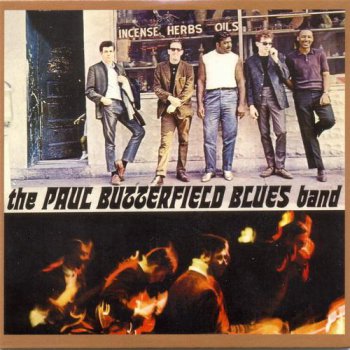

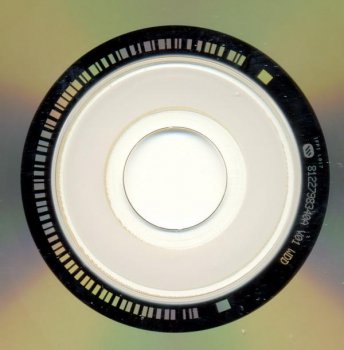
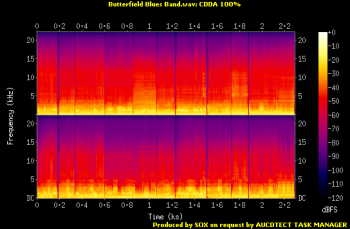
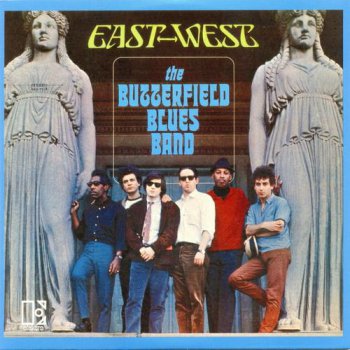

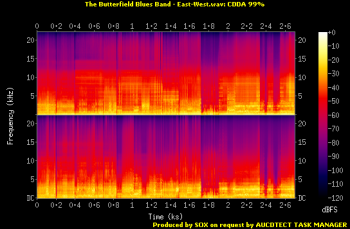
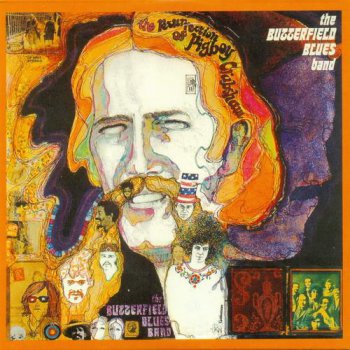
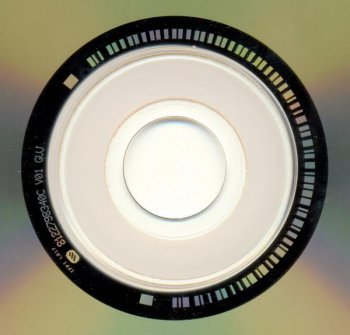
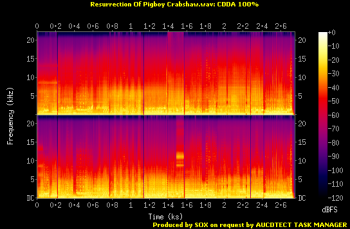
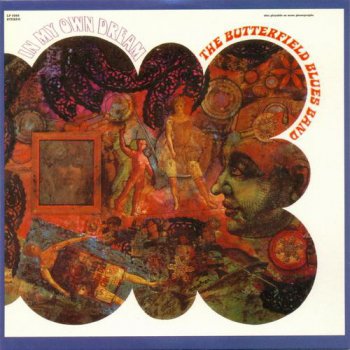
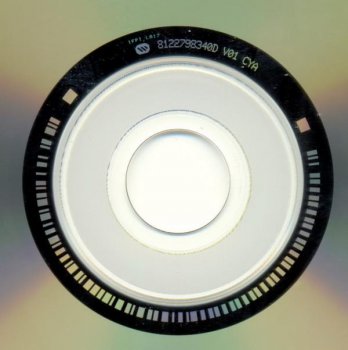
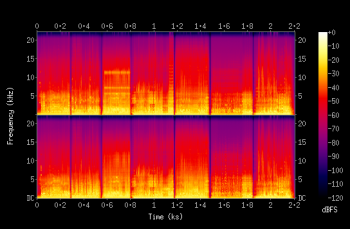
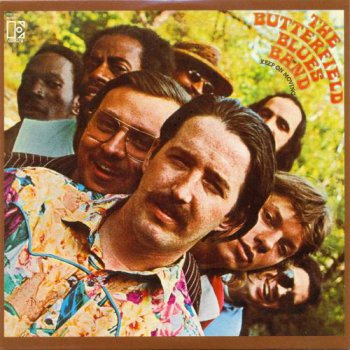

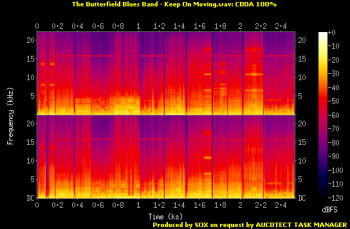
![The Paul Butterfield Blues Band - The Studio Album Collection 1965-1971 [Hi-Res] (2015)](/uploads/posts/2016-05/thumbs/1463599297_97665.jpg)
